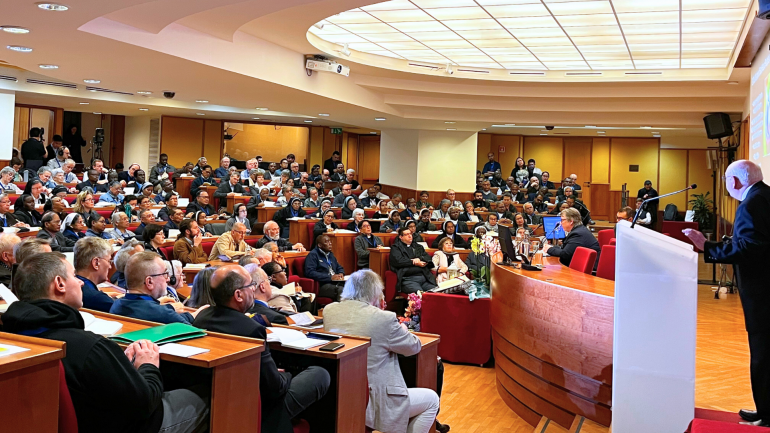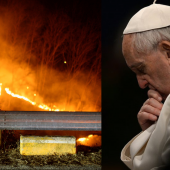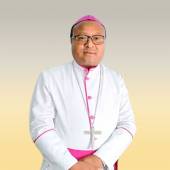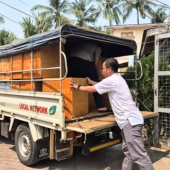Mission in plural world: God’s work through interreligious encounter

The third day of the Society of Divine Word (SVD) General Plenum, which took place on March 29, was all about how people are changing their ideas about Missio Dei (God's mission) as a journey based on dialogue, relationships across cultures, and synods.
The day began with a keynote address by renowned theologian Professor Catherine Cornille of Boston College, USA, who spoke on the “Prospects for an Interreligious Missio Dei.”
Cornille encouraged Christians, especially missionaries, to engage with people of other religions with humility, openness, and courage.
She emphasized that the mission is not about conversion but about co-witnessing to divine truth, promoting peace, and learning from one another.
“Missio Dei,” she explained, “is not only about proclaiming the Gospel but also about working together with people of different faiths to build a better world.”
Drawing from examples in Asia, Cornille showed how encounters with Hinduism, Buddhism, and Islam can deepen Christian identity and open doors to spiritual and social transformation.
She quoted both David Bosch and Pope Francis, highlighting the need for epistemic humility—acknowledging we do not have all the answers, but we can walk together in faith and compassion.
Fr. Chris Chaplin, MSC, President of the International Association of Catholic Missiologists (IACM), moderated the session.
Fr. Antonio Pernia, former SVD Superior General from the Philippines and professor at Divine World Institute of Mission Studies (DWIMS) Tagaytay, followed with a reflection titled “Interculturality: Mission in an Age of Multiculturalism.”
He discussed how global migration and multicultural societies require a change from inculturation to interculturation, which means that people from different cultures need to meet, talk to each other, and change each other.
Pernia described interculturality as more than coexistence. “It is a transformative encounter in the light of the Gospel,” he said.
He also said that the SVD's history in cultural studies, especially the work of the Anthropos Institute, was an important part of the Church's mission around the world. He concluded that interculturality is not just a new approach—it is essential for the future of the mission.
While giving another powerful speech, Jesuit Fr. Agbonkhianmeghe E. Orobator, Dean of the Jesuit School of Theology at Santa Clara University, talked about how different cultures play a part in the way the synod works. Pope Francis has called for a synodal Church, and Orobator echoed this. He said that cultures are not barriers, but ways for the Holy Spirit to speak.
He showed how cultural knowledge can improve the Church by using African values like Ubuntu and palaver (community-based dialogue) as examples. But he also warned that power struggles and exclusions within cultures can block true synodality.
He stated that if the Church was to be a place of welcome, inclusion, and change, synodality had to defy expectations.
Fr. Mathew Vattamattam, CMF, Superior General of the Claretian Missionaries, moderated the plenum sessions. Participants were actively involved in the Q&A sessions, which sparked insightful conversations and enriched the day’s reflections.
People could take part in a series of workshops that looked at the practical aspects of intercultural and interreligious missions.
A discussion about the difficulties and benefits of missions to other cultures was led by Fr. Roger Schroeder, SVD, of the Catholic Theological Union in Chicago. Fr. Chris Chaplin, MSC, served as the moderator.
Professor Ambrogio Bongiovanni from the Pontifical Gregorian University in Rome gave a talk called "Encountering the Other. Pooda Antoine de Padou from the Pontifical Urbaniana University led the discussion.
In the meantime, Gaetano Sabetta led a session called "Encounter of Respect," where Fr. Piotr Adamek, SVD, of Fu Jen University in Taipei talked about his thoughts on Taiwanese folk religion.
They said again on the third day of the SVD Plenum that mission today needs to be a life-long conversation based on Gospel values but open to the wisdom and richness of other religions and cultures.
This message has a lot of meaning for Asia and the rest of the world, where people from all walks of life are looking for peace, justice, and God's presence in their shared humanity.
Radio Veritas Asia (RVA), a media platform of the Catholic Church, aims to share Christ. RVA started in 1969 as a continental Catholic radio station to serve Asian countries in their respective local language, thus earning the tag “the Voice of Asian Christianity.” Responding to the emerging context, RVA embraced media platforms to connect with the global Asian audience via its 21 language websites and various social media platforms.













